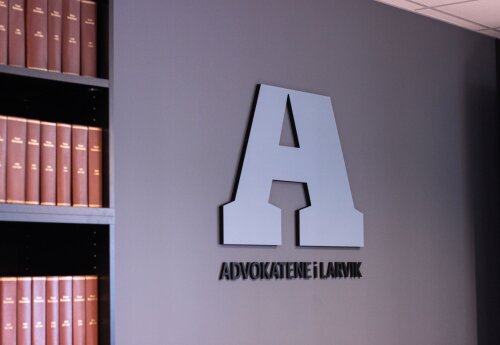Best Labor Law Lawyers in Norway
Share your needs with us, get contacted by law firms.
Free. Takes 2 min.
Or refine your search by selecting a city:
List of the best lawyers in Norway
About Labor Law in Norway
Labor Law in Norway is designed to regulate the relationship between employers and employees, ensuring that the rights and responsibilities of both parties are well-defined and protected. The primary legislation governing labor law in Norway is the Working Environment Act (Arbeidsmiljøloven), which emphasizes safe working conditions, equitable treatment, and protection against unfair practices. Norwegian labor law is known for its strong emphasis on the rights of employees, including collective bargaining rights and the freedom to unionize.
Why You May Need a Lawyer
There are several situations in which individuals may require legal help in the field of labor law in Norway. Common scenarios include disputes over employment contracts, wrongful termination, discrimination in the workplace, issues related to occupational health and safety, and disagreements over wages or working hours. Seeking legal advice can help navigate complex local regulations and ensure that your rights are upheld, whether you are an employee or an employer.
Local Laws Overview
The key aspects of local laws relevant to labor law in Norway include:
- Working Environment Act: Provides a comprehensive framework for health, safety, and welfare in the workplace.
- Equal Opportunities: Laws to prevent discrimination on grounds such as gender, ethnicity, religion, and age, ensuring equal treatment for all employees.
- Collective Bargaining: Strong protections for the right to organize, bargain collectively, and strike.
- Working Hours and Overtime: Regulations setting limits on working hours, including overtime pay and mandatory rest periods.
- Employment Contracts: Legal requirements for what must be included in work contracts and clarification on permanent vs. temporary employment.
- Termination and Severance: Procedures and rights regarding layoffs and dismissal, including notice periods and severance pay.
Frequently Asked Questions
What are the maximum working hours per week?
The standard workweek in Norway is 40 hours. Any work beyond this must generally be compensated as overtime.
Are employees entitled to paid holidays?
Yes, employees are entitled to a minimum of 25 working days of holiday annually. The holiday pay rate is typically 10.2% of annual earnings.
What rights do employees have regarding maternity and paternity leave?
Parents in Norway have the right to a total of 12 months of paid parental leave, which can be split between mother and father.
Can an employer terminate an employment contract without notice?
Termination without notice is only allowed in cases of gross misconduct. Otherwise, notice periods vary based on employment duration.
What is considered workplace discrimination?
Workplace discrimination involves unjust treatment based on factors such as gender, ethnicity, age, disability, and sexual orientation.
How are disputes between employers and employees typically resolved?
Disputes can first be addressed through mediation, and if unresolved, they may be taken to a labor court or arbitrator.
Are non-compete clauses enforceable in Norway?
Non-compete clauses are enforceable under certain conditions, such as reasonable time restrictions and geographic limitations.
What are the employer’s obligations regarding workplace safety?
Employers must ensure a safe working environment, conduct risk assessments, and take preventive measures against workplace accidents.
Can employees join or form a union freely?
Yes, Norwegian law protects the right to form or join unions and engage in collective bargaining.
How can employees address unpaid wages?
If facing unpaid wages, employees can contact their union or the Norwegian Labour Inspection Authority for assistance.
Additional Resources
For more detailed information or assistance, you can consult the following resources:
- Norwegian Labour Inspection Authority (Arbeidstilsynet): Provides guidance on working conditions and rights.
- The Equality and Anti-Discrimination Ombud (LDO): Offers support on discrimination-related issues.
- Legal Aid Clinics: Many universities and NGOs offer free or low-cost legal advice and representation in labor disputes.
- Trade Unions: Can provide support, advice, and representation for employees in disputes.
Next Steps
If you need legal assistance in the field of labor law, consider taking the following steps:
- Document any incidents or issues that need legal addressing, including keeping a record of communications and relevant documents.
- Reach out to a labor law attorney or legal clinic for an initial consultation to understand your rights and potential courses of action.
- Consider joining a union if you haven't, as they can offer substantial support and resources in legal matters.
- Contact local authorities such as the Norwegian Labour Inspection Authority if you need to report violations or seek official intervention.
Lawzana helps you find the best lawyers and law firms in Norway through a curated and pre-screened list of qualified legal professionals. Our platform offers rankings and detailed profiles of attorneys and law firms, allowing you to compare based on practice areas, including Labor Law, experience, and client feedback.
Each profile includes a description of the firm's areas of practice, client reviews, team members and partners, year of establishment, spoken languages, office locations, contact information, social media presence, and any published articles or resources. Most firms on our platform speak English and are experienced in both local and international legal matters.
Get a quote from top-rated law firms in Norway — quickly, securely, and without unnecessary hassle.
Disclaimer:
The information provided on this page is for general informational purposes only and does not constitute legal advice. While we strive to ensure the accuracy and relevance of the content, legal information may change over time, and interpretations of the law can vary. You should always consult with a qualified legal professional for advice specific to your situation.
We disclaim all liability for actions taken or not taken based on the content of this page. If you believe any information is incorrect or outdated, please contact us, and we will review and update it where appropriate.
Browse labor law law firms by city in Norway
Refine your search by selecting a city.















